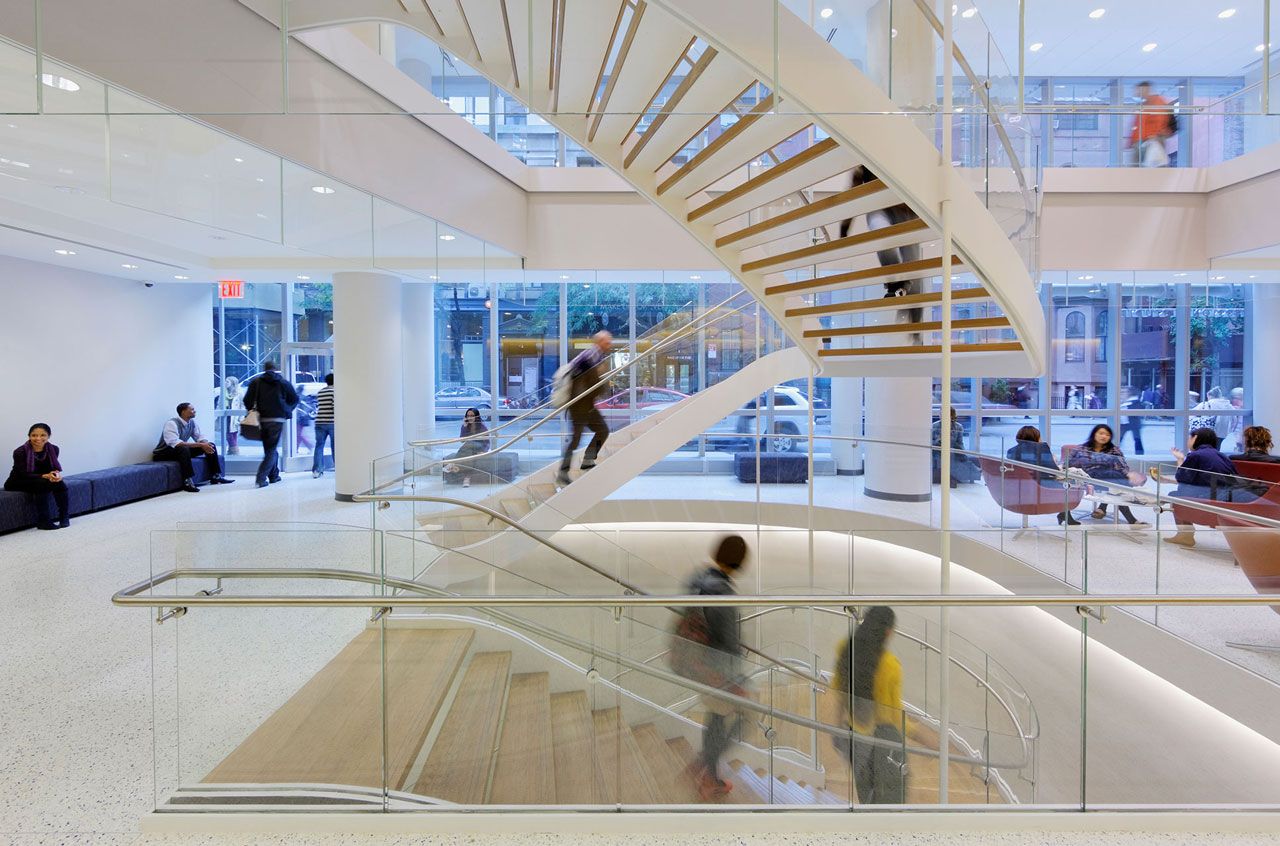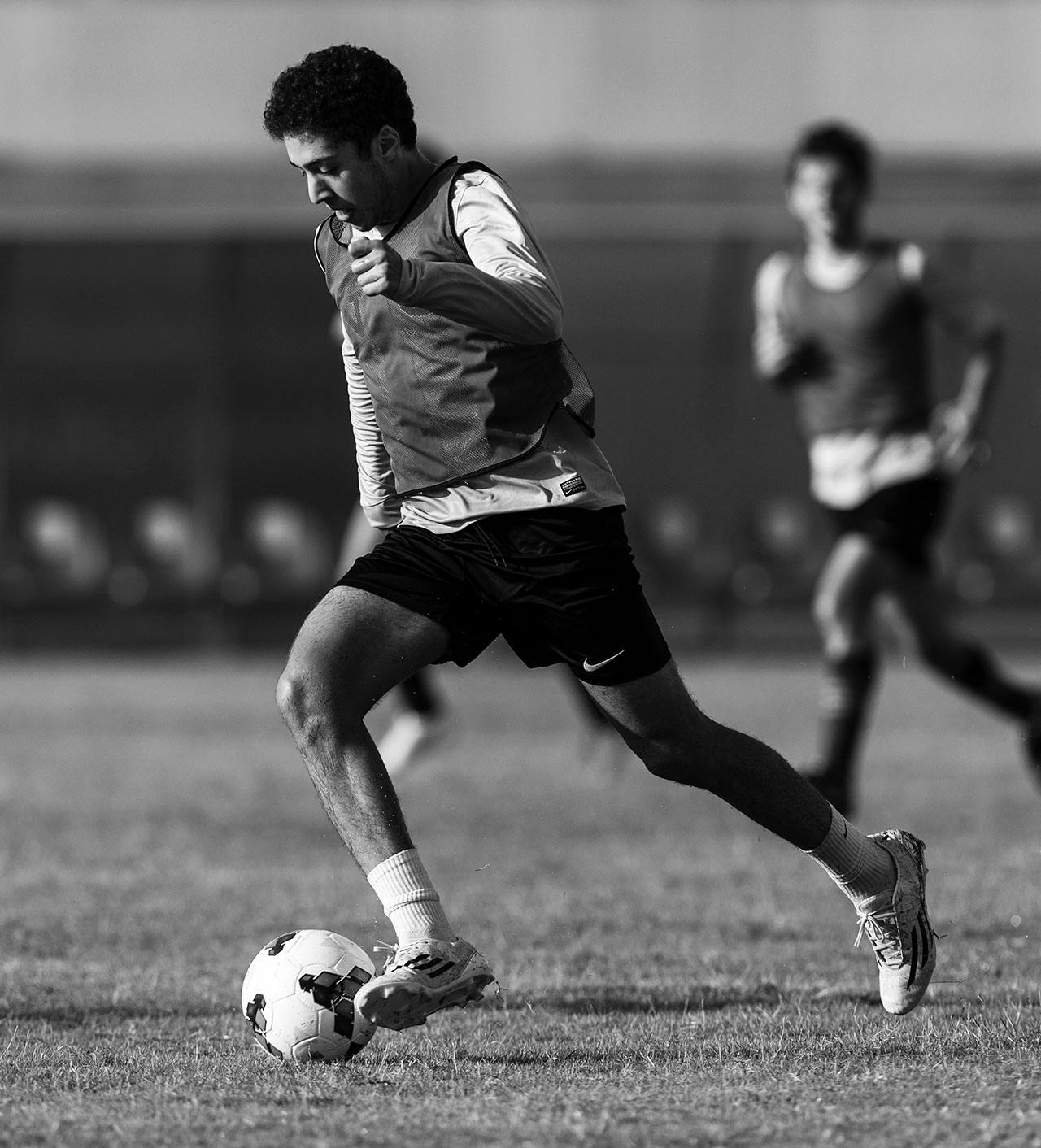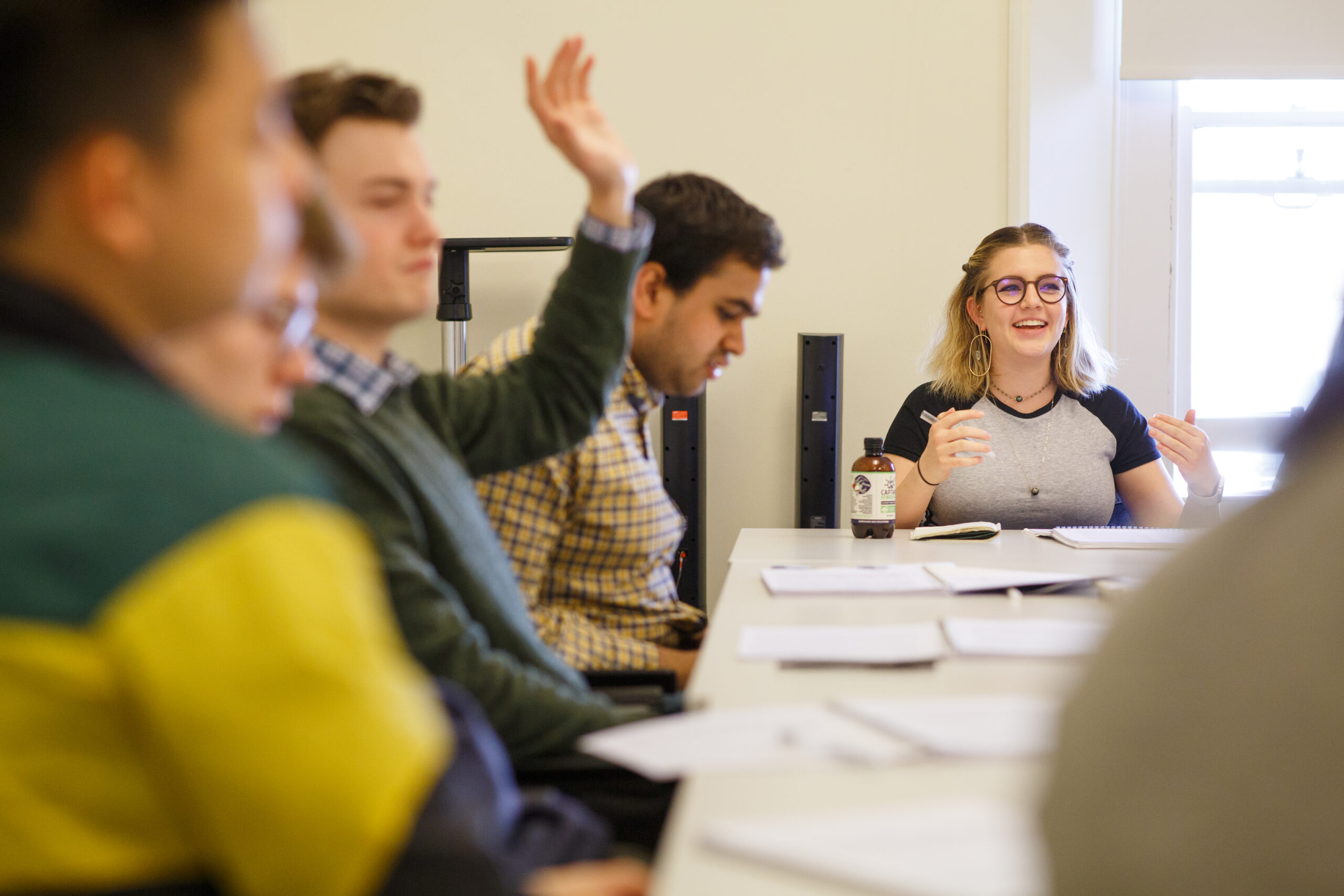
In the Real World courses at NYU’s School of Professional Studies (SPS), students compete in small teams to solve complex problems posed by real companies. These industry partners include top organizations like Fox Sports, ESPN, Samsung, JetBlue, and Porsche. For Tien Nguyen, SPS Class of 2022, that meant working on a project for Converse, a popular shoe company and subsidiary of Nike. The challenge? Help Converse break into esports without jeopardizing its brand identity. Over 14 weeks, Tien and his teammates conducted research, led client meetings, strategized, and rehearsed their final pitch, which earned them first place in the competition.
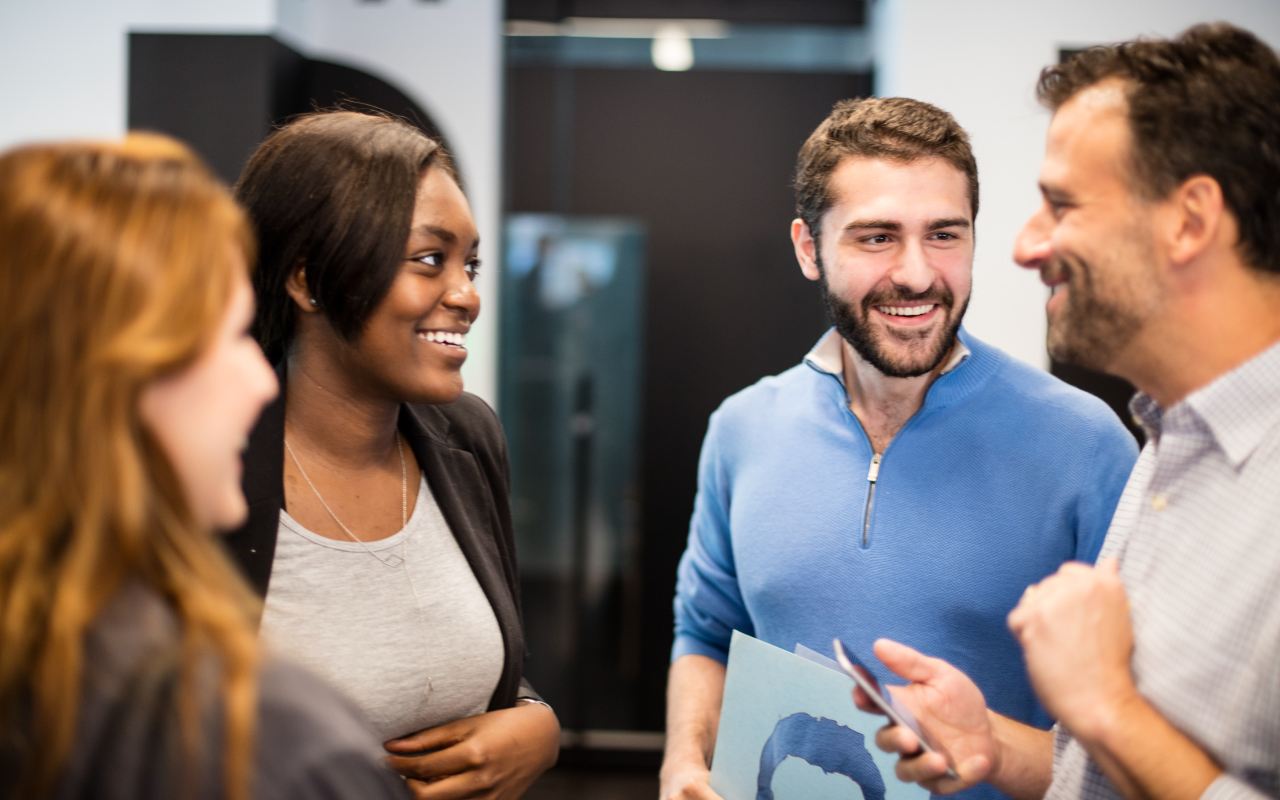
The Creation of Real World
According to David Hollander, assistant dean of SPS Real World, the program began more than a decade ago with one sport management course. After Fox Sports emerged as an eager collaborator, more and more courses were created for other organizations and departments at SPS. Since then, it’s become one of the hottest offerings at NYU. Still, the goal of each course remains steadfast: to put students in a real-life business setting with real pressure, real executives, and real projects. There, they can sharpen their listening, empathy, and teamwork skills. “Real problems are solved by people who come from totally different intellectual backgrounds,” says Professor Hollander. “If you don’t get that experience until after you graduate, then I haven’t done my job.”
Like Tien, many students apply for an SPS Real World course because they want an immersive and interdisciplinary experience working for executives from top-notch brands. “It’s the best way to learn because you’re immersed in the business world right from the start,” says Tien. For example, they learn business lingo, participate in meetings, and synthesize ideas into pitches. First, the program seeks to expose students to the basic problem-solving process. Next, students build the hard and soft skills they need to solve those problems.
“It’s really about the experience,” explains Professor Hollander. “Real stakes. Real time. And real competition. We help students build their thinking skills, empathy skills, listening skills, and teamwork skills. We teach them how to solve problems in a rapidly changing world. Those are the skills they’ll need for the rest of their lives.”
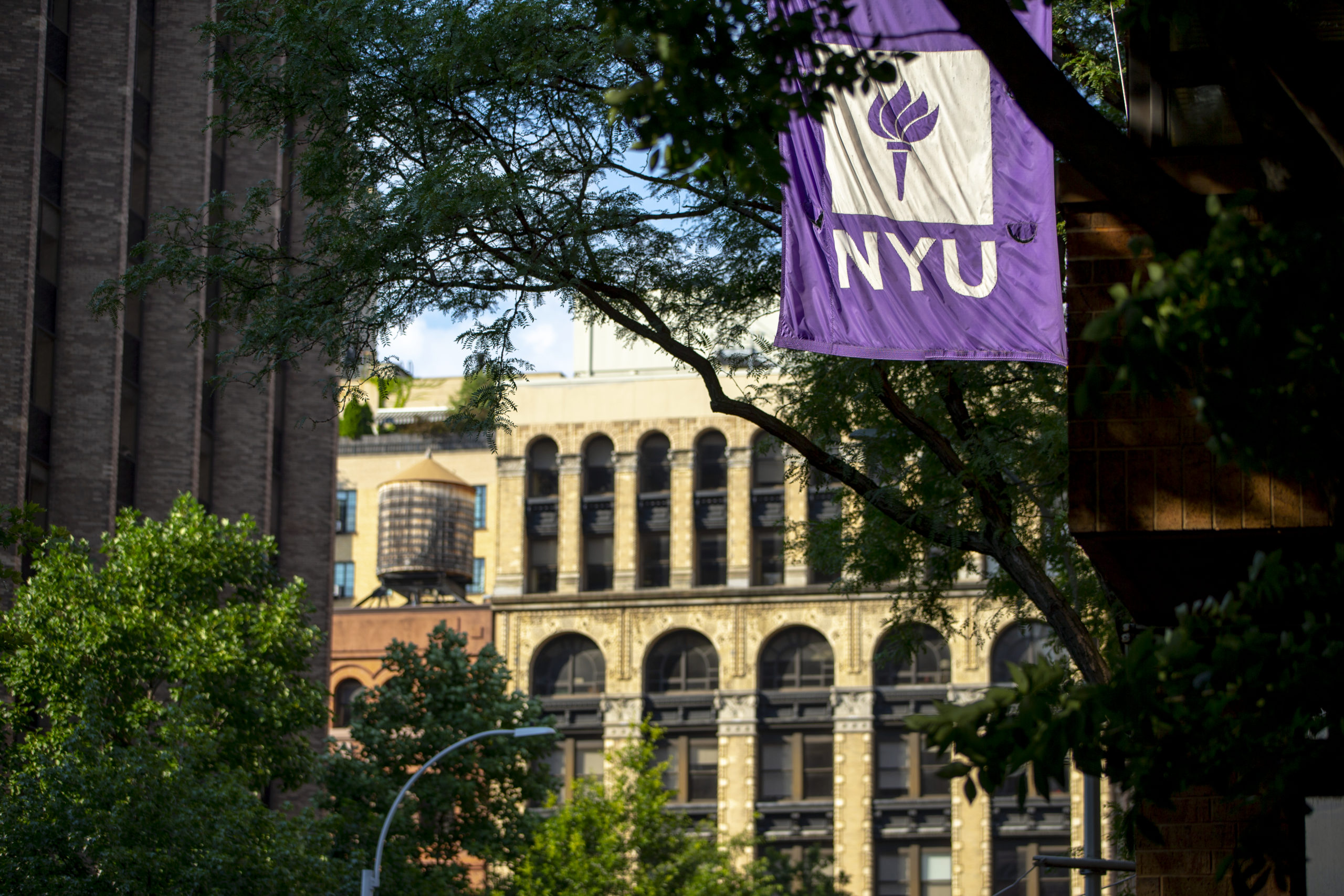
The Structure of a Real World Course
Although Real World courses cover different industries with different challenges, each follows the same structure. On the first day of class, the client delivers a brief explaining who they are, what they do, and the real-world problem they need to solve. Then, the class divides into four teams of four, with each team working on the same problem for the rest of the semester. After several weeks, each team attends a client check-in. On the last day of class, the teams present their pitches to the client.
“The first class, midway check-in, and final class—that’s the bare minimum,” says Professor Hollander. “But most of the time, the client offers students exclusive access to certain experiences only they can give.” For example, previous students attended a Jets game to observe the consumer behavior of fans. Another group visited a Porsche dealership to observe salespeople interact with customers. And another checked into the client’s hotels to understand the check-in process. “It’s truly an immersive, collaborative experience,” adds Professor Hollander. “Because of that, our partners get to see students’ higher-level thinking. They get to see what’s happening in their brains. And that’s what leads to interviews, internships, and jobs.”
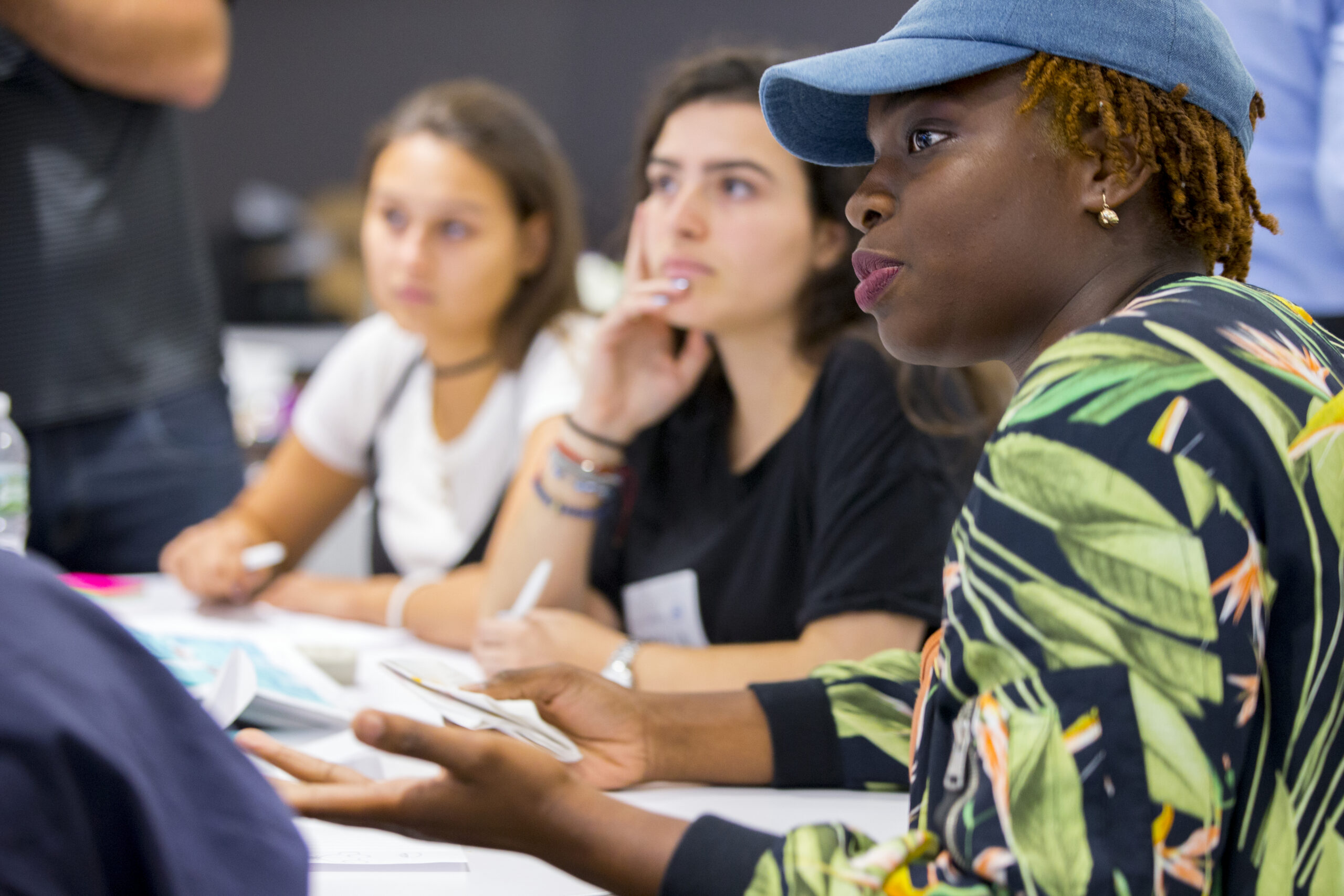
Real Impact on Student Lives
Like other students, Tien attributes his current success to the Real World course he took in fall 2020 at NYU. “I sincerely believe this course alone set the path for my career and where I am now,” he affirms. For example, after completing Real World, Tien landed an internship with Paris Basketball. Soon after, Madison Square Garden offered him a student associate position in their marketing partnerships department. This ultimately led to a full-time role in the same department after graduation. “Looking back, it all started with Converse and esports,” he reflects. “I was able to add my Real World experience to my résumé, which was a massive advantage. Now I’m in a full-time position doing what I love.”
For most students, Real World is a transformative experience that introduces them to the fast-paced reality of business. Faced with an unexpected challenge, they’re forced to think creatively, ask questions, and learn on the fly. This type of learning, says Professor Hollander, is unique and completely unmatched.
“You cannot get better experiential learning for problem-solving than at this university in this city, where we have superstars in every industry,” he concludes. “Since Real World began, we’ve had 20 instructors teach more than 100 courses for over 1,500 students. I’m really happy with the human beings we’re sending out into this world.”

